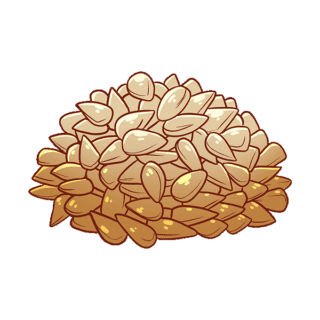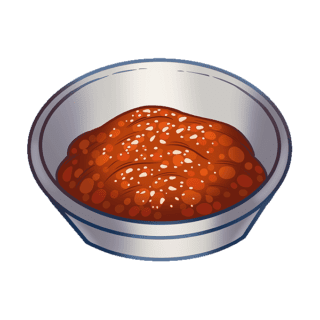Sesame Seeds
They’re sprinkled onto or mixed into baked goods, confections, dim sum, sushi — everything, really; they’re made into a paste in tahini and, through extension, hummus; they’re toasted or cold-pressed into an oil that’s key to many dishes and cuisines such as Korean food, with its distinct base of sesame oil and gochugaru chili powder. It more or less feels unnecessary to talk about what sesame seeds are used in, since we all know they’re everywhere!
The nutty flavor is inimitable and the oil is just as rich and flavorful if not more so. In fact, sesame is thought to be humanity’s first oilseed crop since humans domesticated it at least 5,000 years ago.
Although they’re small, these seeds are extremely nutrient dense. They’re high in protein and fiber, poly- and monounsaturated fats — although they do have some saturated fat as well — and many vitamins and minerals. Sesame also contains copper, which is critical to your blood and immune function, along with noteworthy amounts of iron, magnesium, selenium, phosphorus, zinc, and certain B vitamins.
The sesamol compound found in sesame seeds also acts as an antioxidant while helping your body stave off inflammation and promote cellular and liver health. They also have the highest concentration of phytosterols — compounds which help stabilize cholesterol — of all the seeds and nuts commonly found in people’s diets. Despite the health benefits, many people are the world are allergic to sesame seeds.
The rich flavor and versatility of sesame paired with its nutritional benefits make it evident why it is a common ingredient around the world. At Uwajimaya, we carry sesame seeds in the grocery department.





